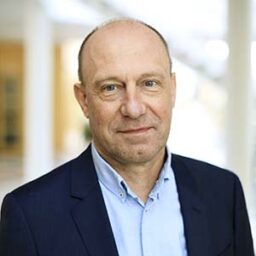
PHI links up with two regenerative medicine networks
In 2023, Phase Holographic Imaging has solidified its footprint in regenerative medicine. While the summer appeared calm on the surface, behind-the-scenes activities have been brewing. Most notably, the company has been actively expanding its regenerative medicine network through two strategic organization memberships. CEO Patrik Eschricht tells us more in this BioStock interview.
Phase Holographic Imaging (PHI) is currently commercialising its time-lapse imaging products designed for cell research and long-term cell analysis. Over the past two years, the company has pivoted its focus towards regenerative medicine, a growing field that aims to repair or replace damaged cells and tissues in health care.
Introducing the HoloMonitor M4FL
PHI expanded its product range with the HoloMonitor M4FL system this year. Combining QPI holography and fluorescence imaging, the system minimizes harsh light exposure on cells for more accurate cell research and outcomes.
In June, the scientific world got a first glance at the innovative tool at the 2023 Annual Congress of the European Association for Cancer Research (EACR 2023) in Torino, Italy.
The same week, HoloMonitor M4FL was showcased at the thought-leading International Society for Stem Cell Research 2023 Annual Meeting (ISSCR 2023) in Boston, Massachusetts.
PHI’s integration of QPI holography and fluorescence microscopy broadens non-invasive live cell imaging applications from cancer studies to regenerative medicine.
Joining two regenerative medicine organizations
Recently, PHI joined The Alliance for Regenerative Medicine (ARM). This global organisation advocates for cell and genetic therapies, representing 475 members in 25 countries. ARM focuses on regulation, market access, and funding. The company also joins ranks with ATMP Sweden, a national network specialising in gene and cell therapies. It fosters collaboration among researchers, healthcare experts, and industry to advance Advanced Therapy Medicinal Products (ATMP) development.
Comments from the CEO

BioStock contacted PHI’s CEO, Patrik Eschricht, to learn more about the company’s future strategies in regenerative medicine and the pivot toward the clinical market.
Patrik, what are the reasons behind becoming a member of these regenerative medicine organizations?
– Our decision comes from our commitment to advance the field. We see the rapid progress in regenerative medicine and the critical need for standardized and reliable quality control measures. Our non-invasive QPI technology is uniquely suited to meet the demands for cell-friendly quality control. It is the precious cells that are the treatment or cure that will be reintroduced to the patient.
– Our aim is to advocate for the adoption of QPI as the standard for cell quality control in regenerative medicine. We are dedicated to promoting cell-friendly imaging practices, facilitating advancements in regenerative medicine, and ensuring the highest standards of quality control.
Why these specific networks – one in the US and one in Sweden?
– It was a natural choice for us. ARM, as a leading international advocacy organization within regenerative medicine, perfectly aligns with our expanding presence and network, especially in the US. ARM, along with its member companies, academic and medical research institutions, and patient organizations, addresses critical issues like regulatory pathways and manufacturing hurdles, making it the right platform for us to advocate for QPI for standardized cell quality control.
– Moreover, with our PHI headquarters in Lund, joining ATMP Sweden is an obvious choice. This allows us to have a more significant impact in Sweden and broaden our national network.
You’re shifting focus towards the clinical market as opposed to pre-clinical research. What’s the strategy for making this transition?
– Our strategy involves several key components. We’re actively working on pursuing GMP compliance, which is essential for the clinical applications of our products. Also, we have begun the work for implementing a Quality Management System. This way, we will be able to maintain the highest standards in our product development for instruments specifically tailored to the needs of regenerative medicine. All these steps are taking us towards our vision for QPI technology, which is already a proven tool in pre-clinical research, to become the industry standard for quality control in all regenerative medicine applications.
Finally – Can you outline PHI’s future plans?
– As a smaller company with limited resources, we recognize the importance of joining networks like ARM to level the field with larger players. We have strong confidence in our QPI technology, as our HoloMonitor products have demonstrated their value in pre-clinical research. We firmly believe that QPI technology will play a crucial role in ensuring the accessibility, affordability, and safety of regenerative medicine for patients. We’re prepared to go head-to-head with larger companies, leveraging our innovation to reach our goal and establish QPI as the industry standard for cell quality control. If we succeed — can you imagine what that would mean for PHI?
Innehållet i BioStocks nyheter och analyser är oberoende men BioStocks verksamhet är i viss mån finansierad av bolag i branschen. Detta inlägg avser ett bolag som BioStock erhållit finansiering från.

